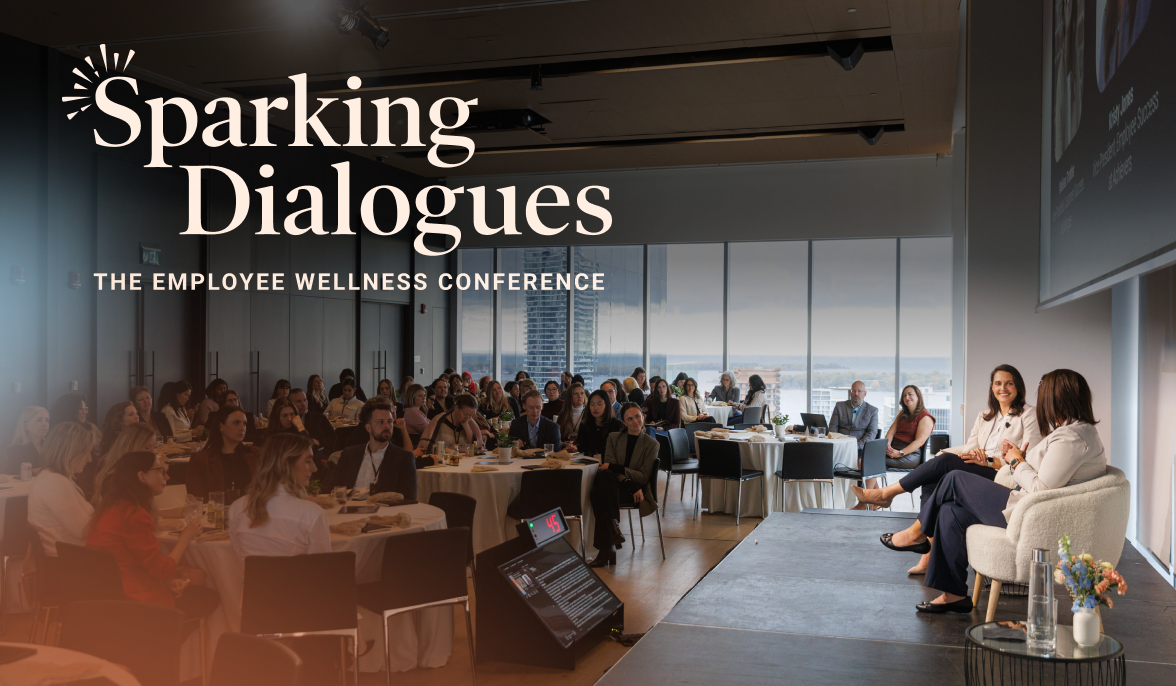The landscape of workforce well-being is evolving. Talent attraction, retention, and other staffing issues have come out as the most significant challenges for organizations in 2023. These concerns have prompted HR leaders to explore new strategies to tackle them head-on.
Rising to the top of the list of issues: insufficient mental health support. But a promising trend is emerging. Organizations and employees show growing interest in self-led mental health tools.
Another notable hurdle is overcoming tight budgets and securing C-Suite buy-in to improve benefits packages. Adopting better programs becomes even harder without the ability to measure outcomes.
We invited a panel of HR and health experts to discuss these critical issues surrounding talent management and employee well-being. Our focus?
-
The barriers faced by leaders in adopting comprehensive employee benefits packages
-
The imperative for organizational leaders to lead by example
-
The increasing reliance of individuals on their employers for support
 Listen to the full conversation here
Listen to the full conversation here
The changing dynamics of workplace well-being
Dr. Mike Mousseau said it best: Gone are the days when employee well-being initiatives were solely grassroots-driven endeavours. Today, there is a growing realization that leaders must take the reins and actively champion health in the workplace.
Employees count on their employers to not only take care of them financially, but also emotionally and physically. Dave Tuck recognizes that if employers don't step up, someone else will. In the current competitive landscape, staying ahead in terms of employee engagement is a must.
Employee well-being challenges and opportunities
Organizations face serious staffing issues, but there may be a silver lining. Employees are showing a greater interest in exploring the benefits offered by companies. According to Sylvain Beauséjour, this shift should compel organizations to carefully reconsider their value proposition.
How can employers influence employee retention, engagement, and long-term commitment? There’s an opportunity to define how they can demonstrate genuine care for their workforce.
But Dr. Stephanie Moynihan points out an added layer of complexity: the healthcare system. Accessing well-being support has become challenging with the current framework and limited budgets, leading employees to rely more on their employers to bridge this gap.
The shift in employee expectations
Recruitment is changing. And the questions candidates ask during the hiring process reflect this shift. In the past, Heidi Flynn reveals, the focus was primarily on compensation and job responsibilities. But there has been a notable rise in the interest in benefits packages. When extending a job offer, candidates frequently request a conversation about the company's benefits plan.
This development is a game changer and distinguishes employers who simply provide a list of benefits from those who genuinely care. Candidates now seek evidence of a company's authentic concern for their well-being, their families, and their colleagues.
Dialogue’s high-touch well-being solutions can help
Our panellists are steadfast: To strengthen their business, organizations must confront the challenges associated with employee well-being head-on. The inadequacy of current mental health offerings, barriers to implementing comprehensive benefits, and the crucial role of leadership in fostering a culture of self-care are among the key aspects that demand attention.
Dialogue’s programs deliver personalized support that matches employees’ specific needs. Primary Care and Employee Assistance Program give member access to practitioner-led care and follow-ups, ensuring a speedy return to health. Combined with Mental Health+ and Wellness, members can prevent well-being concerns and treat current ones, all at their own pace.
With Dialogue, organizations also have access to timely insights to help measure the impact of health and wellness initiatives. This allows you to make informed decisions to optimize benefits and gain leadership buy-in – so that your employees receive the care and support they need.




 Canada (EN)
Canada (EN)
 Global (EN)
Global (EN)








